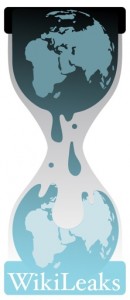 How One Website is Changing Journalism
How One Website is Changing Journalism
Wikileaks first came online in 2007, promising any individual a forum to anonymously publish previously classified, hidden or sensitive documents and make them publicly available.
The idea was relatively simple: given the viral nature of the Internet – and the ease of duplicating digital documents – once secret information was published, it could never become secret again.
From this one idea, hundreds of thousands of secrets have now become public.
Read more after the jump. Read the rest of this entry »


